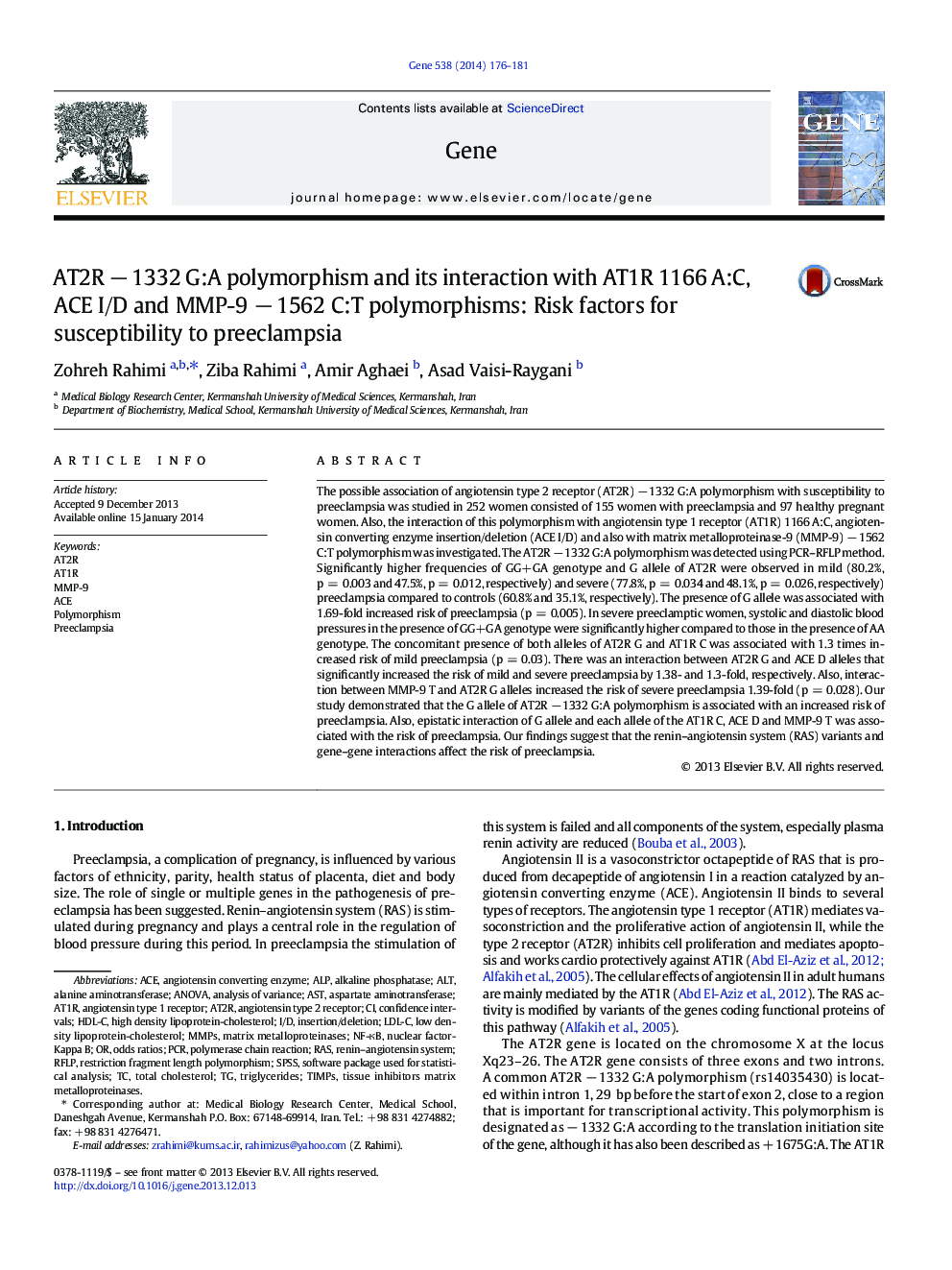| Article ID | Journal | Published Year | Pages | File Type |
|---|---|---|---|---|
| 2816606 | Gene | 2014 | 6 Pages |
•The AT2R − 1332 G allele increased the risk of both mild- and severe-preeclampsia.•AT2R GG+GA genotype increased the blood pressure in severe preeclamptic women.•Interaction of AT2R G allele with AT1R C allele increased the risk of mild preeclampsia.•Combined presence of AT2R G and ACE D alleles increased the risk of preeclampsia.•Interaction of AT2R G allele with MMP-9T allele increased the risk of severe preeclampsia.
The possible association of angiotensin type 2 receptor (AT2R) − 1332 G:A polymorphism with susceptibility to preeclampsia was studied in 252 women consisted of 155 women with preeclampsia and 97 healthy pregnant women. Also, the interaction of this polymorphism with angiotensin type 1 receptor (AT1R) 1166 A:C, angiotensin converting enzyme insertion/deletion (ACE I/D) and also with matrix metalloproteinase-9 (MMP-9) − 1562 C:T polymorphism was investigated. The AT2R − 1332 G:A polymorphism was detected using PCR–RFLP method. Significantly higher frequencies of GG+GA genotype and G allele of AT2R were observed in mild (80.2%, p = 0.003 and 47.5%, p = 0.012, respectively) and severe (77.8%, p = 0.034 and 48.1%, p = 0.026, respectively) preeclampsia compared to controls (60.8% and 35.1%, respectively). The presence of G allele was associated with 1.69-fold increased risk of preeclampsia (p = 0.005). In severe preeclamptic women, systolic and diastolic blood pressures in the presence of GG+GA genotype were significantly higher compared to those in the presence of AA genotype. The concomitant presence of both alleles of AT2R G and AT1R C was associated with 1.3 times increased risk of mild preeclampsia (p = 0.03). There was an interaction between AT2R G and ACE D alleles that significantly increased the risk of mild and severe preeclampsia by 1.38- and 1.3-fold, respectively. Also, interaction between MMP-9 T and AT2R G alleles increased the risk of severe preeclampsia 1.39-fold (p = 0.028). Our study demonstrated that the G allele of AT2R − 1332 G:A polymorphism is associated with an increased risk of preeclampsia. Also, epistatic interaction of G allele and each allele of the AT1R C, ACE D and MMP-9 T was associated with the risk of preeclampsia. Our findings suggest that the renin–angiotensin system (RAS) variants and gene–gene interactions affect the risk of preeclampsia.
